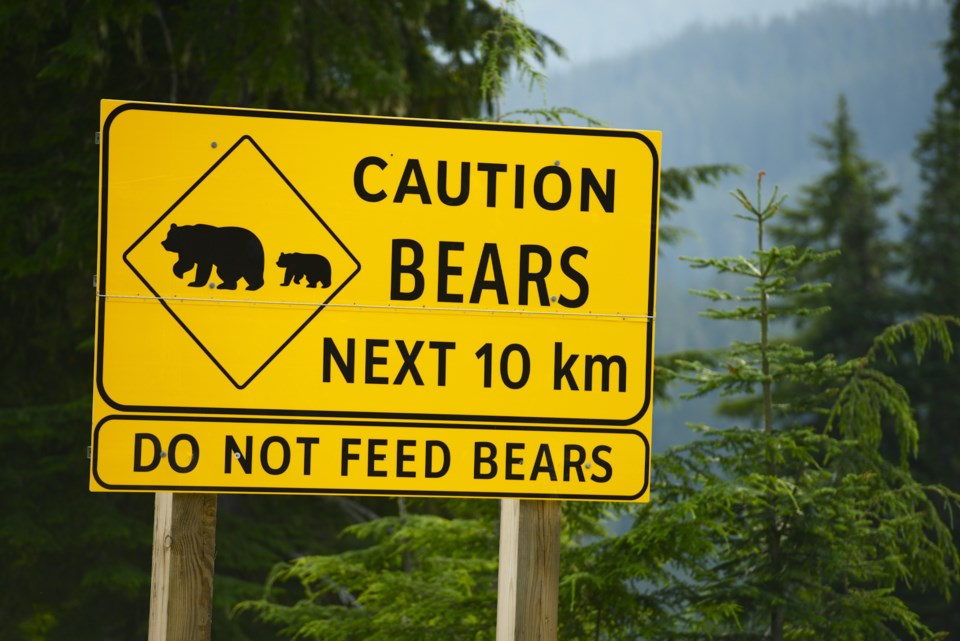A little respect is a good thing when it comes to oceans — and wildlife.
Those of us raised on the coast have likely all had the experience of taking a relative who hails from the Prairies to the ocean and being bemused at their trepidation.
A friend from Alberta expressed fear a killer whale would jump out and attack them — on shore, for example.
My husband, who is from Williams Lake, still thinks about what lurks beneath the surface when we go out on Howe Sound, though he has lived close to the salt air now for most of his adult life.
What I have learned through these exchanges, though, is that folks not used to the ocean have a healthier respect for it than some of us more salt-weathered folks do.
I cringe to admit that while growing up on the island, I was sometimes too casual about the risks of the sea.
Times I jumped into aluminum boats for a spin sans life-jacket or drifted too far out on an old-school red and blue air mattress come to mind as examples.
I have since gained a healthy dose of “I-don’t-want-to-have-to-call-marine-rescue-itis” and am more careful these days.
In Squamish, some of us treat wildlife like I grew up treating the ocean.
Wildlife is by nature — er — wild.
There have been brutal recent examples that prove this.
Earlier this month, a woman in Kelowna was beaten up by a deer — no joke!
And this wasn’t an isolated incident. Three weeks ago, in that area, a hiker was also attacked by a deer.
Apparently, it can happen during rutting season — when bucks are competing for females.
They get cranky.
Again, I serve as a canary in a coal mine on this one.
A few years ago, I was visiting my in-laws in Williams Lake.
I took our dog for a walk, and suddenly, a deer was following us.
“Awe,” I thought, taking out my phone. “This will make a great video for work.”
(Never the right first instinct around wildlife, 100% of wildlife experts would agree.)
Then the deer got closer and started to kick at us, almost hitting my pooch. I quickly crossed the street, dropping my phone in the process as my heart started to race.
The buck followed.
It made a couple of more kicks at us with its front hooves.
I changed direction and ran up a nearby alley, dragging my strangely quiet dog behind me.
Thankfully, the deer gave up and went back the other way.
A life lesson I have not soon forgotten.
Wildlife deserves a healthy dose of our fear.
They are not cuddly friends that exist to improve our Instagram feed.
A more tragic example of the wildness of wildlife took place earlier this month when a black bear attacked two Dawson Creek women who were out admiring the fall leaves along a trail.
They ended up in the ICU with what sounded like life-altering injuries, but not before being trapped and guarded by the assaulting bear for more than an hour.
This was a rare occurrence, to be sure, but it happened nonetheless.
The potential for a serious conflict makes it all the more frustrating when — after repeated warnings — ъёдлиГгЬfolks continue to leave attractants available in their yards or fail to harvest the fruit from their apple trees.
Or when they get too close to local wildlife for a photo.
This is foolhardy.
And while humans can sometimes pay the price for this recklessness, as in the above examples, far too often, the animal is killed for our mistakes.
An average of about 540 black bears per year in B.C. are killed by BC Conservation Officer Service (BCCOS) to protect humans.
As we reported earlier this year, ъёдлиГгЬis one of the Top 10 deadliest places for black bears, with 59 deaths over seven years between 2015 and 2021.
If you do run into a bear, the expert advice is:
• Slowly back away, talking to the bear in a quiet, monotone voice. Do not scream, turn your back on the bear, kneel down or make direct eye contact;
• If the bear gets too close, use pepper spray (within 7 metres) or something else to threaten or distract it;
• If you are with others, act as a group. Keep children close – pick up and carry small children;
• Get indoors and bring pets if possible;
• Make sure the bear has a clear escape route
Report aggressive or threatening wildlife: 1 877 952-7277 (RAPP)



